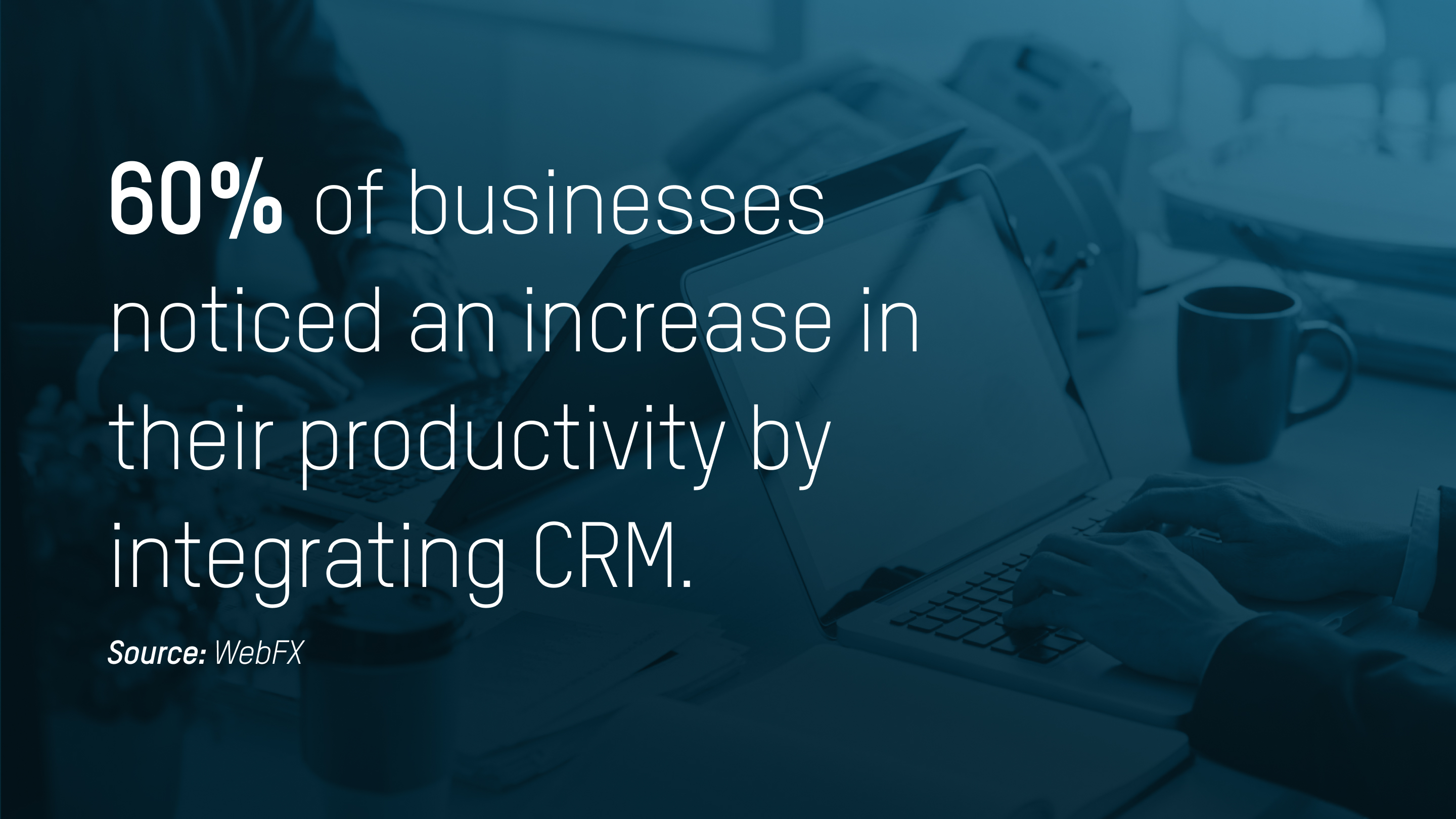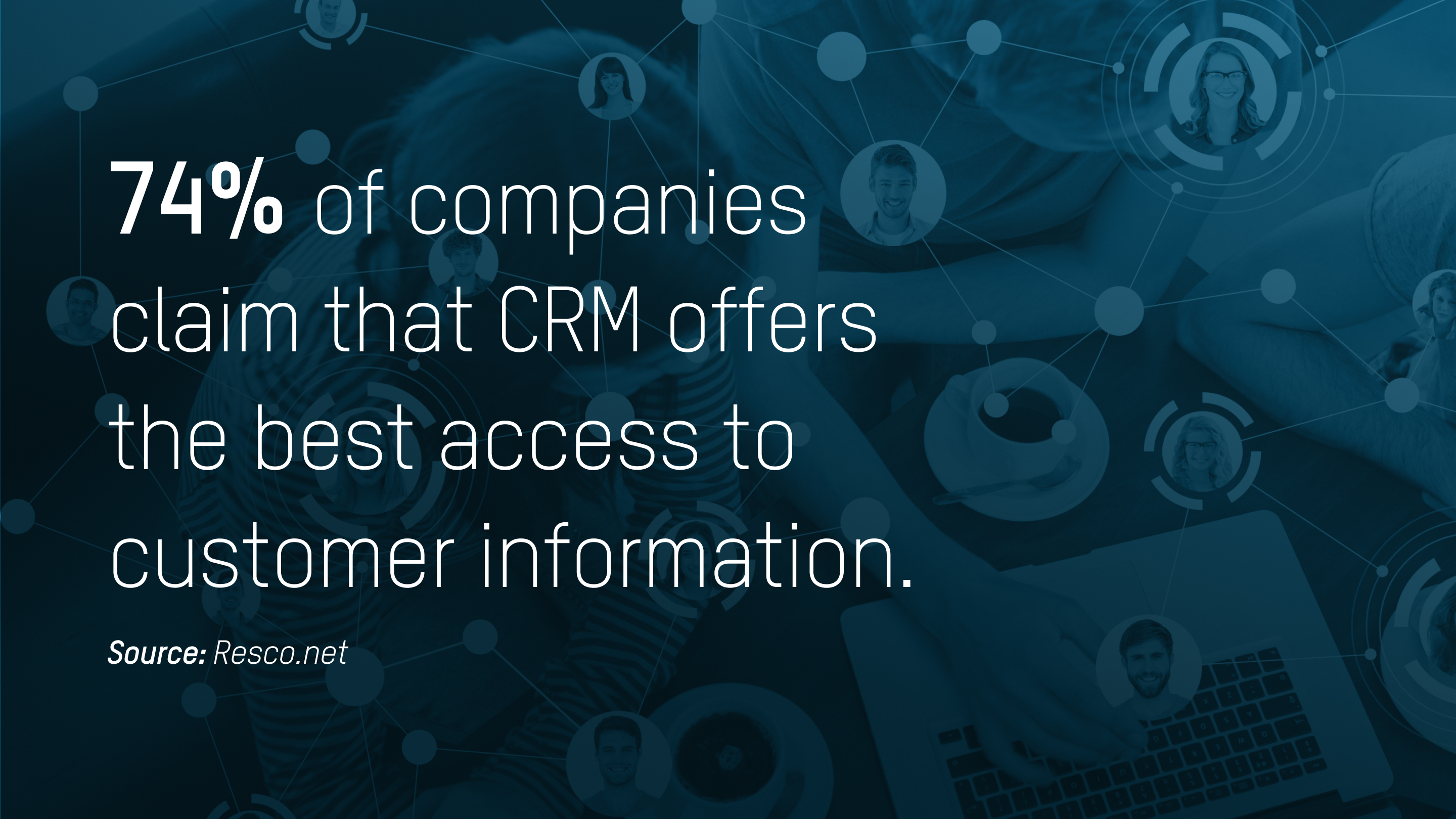There's a common misconception that customer relationship management (CRM) is solely meant for large enterprises (and for sales and lead management efforts). This often makes small businesses a bit wary of using it—but that shouldn’t be the case. CRM should be embraced by organizations of all sizes.
CRM isn’t exclusive to a specific market size, industry niche, or business goal as some might think. Regardless of whether businesses are new to the market, serving a small customer base, or planning to use it beyond sales, they should begin to adopt and reap the benefits of CRM systems immediately.
CRM is At the Heart of True Growth

Customer relationship management (CRM) can be a bit daunting at first glance, but remember, it works to simplify the tricky parts of running a business, not complicate them. It can remarkably increase business productivity and even cut back costs, all while boosting profits. It’s called the heart of a growing business for good reason—and 60% of enterprises that use CRM would agree with this.
All of that because of a piece of software? Well, CRM isn’t merely simple software; it comprises a set of tools, technologies, and techniques designed to uncover how companies truly interact with their customers, providing valuable insights on how to strengthen their relationships with them.
CRM sets itself apart from Marketing Automation Platforms (MAPs) and Email Service Providers (ESPs) by taking a broader approach. While MAPs and ESPs focus mainly on automating particular marketing tasks, CRM looks at the bigger picture, managing the entire customer journey.
The concept behind CRM is really quite simple: try to see every interaction from the customers’ point of view in order to deliver the best possible experience.
To make this happen, businesses will need a CRM software system. You might have heard of Zoho CRM, HubSpot CRM, Monday Sales CRM, Salesforce CRM, NetSuite CRM, Insightly CRM, or Freshsales CRM—all these are examples of CRM tools.

A CRM platform helps businesses gather all their sales, marketing, and customer service information into one secure place, making it easy to manage, track, and analyze. For 74% of CRM users, there's no other solution that provides better access to customer data than CRM systems.
A 360 View of Customer Interactions
Forrester Research found that 42% of agents have a hard time sorting out customer concerns when they can't easily access their information. The best thing about CRM tools is that they minimize this problem for companies. A CRM solution serves as the central hub for all customer information, encompassing sales, marketing, and customer service, thereby minimizing silos within the organization and facilitating easy access to valuable data across departments. This capability is crucial, no matter the size of your business.
When it comes down to it, having a comprehensive view of customer information is vital for delivering top-notch experiences and improving customer relationships. It's not enough for companies to merely pay attention to what’s being said about them on social media by certain customers. Have they also sent requests or complaints through customer service? Have they made any purchases lately? Keeping tabs on all of this customer data is necessary to provide the best experience possible and ensure brand loyalty.
Predict Customer Outcomes With Precision
A CRM tool eliminates the guesswork when predicting customer behavior. With all essential data stored in one place, businesses gain a clear understanding of where their customers are and where they’re headed. This insight enables them to position themselves more effectively and strategize their personalization efforts, upselling and cross-selling initiatives, and retention plans.
With CRM, you can make fairly accurate forecasts about customer behavior. What does this mean for companies? It means they can take proactive steps to prevent customers from severing ties. For instance, if a customer has a less-than-ideal experience, brands can sweeten the deal with personalized incentives to retain them.
They can also use a myriad of CRM features to spot areas that might be bothering their customers and resolve them before losing more. Alternatively, they can build loyalty programs that help retain customers for the long term. It’s no wonder that 27% of enterprises that integrate CRM see a drastic improvement in their retention rates.
Customer relationship management (CRM) is a great approach to pleasing and retaining customers. It not only reduces customer acquisition costs and increases the average transaction value per customer, but also results in long-term revenue growth for businesses. Ultimately, keeping existing customers happy can be more profitable than constantly chasing new ones.



